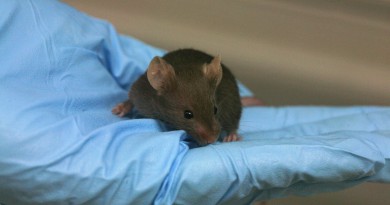UBC Denies Group Information About Animal Research
VANCOUVER (September 9, 2010) – Today, Stop UBC Animal Research criticized the University of British Columbia (UBC) for denying it access to information about UBC’s animal research programs. The group had requested photos, video footage, and protocols of animal experiments performed at the university, including of research on cats, non-human primates, and piglets, but UBC recently denied those requests. Each year, thousands of UBC projects involve the use of animals, some of which include highly invasive and painful procedures. The group encouraged media to file freedom of information requests to UBC to obtain information it says the public has a right to know. Much of UBC’s animal research is paid for with public money.
“UBC is an educational institution that promotes debate, critical thinking, and transparency. Yet, it refuses to release information about experiments conducted on animals,” said Brian Vincent, a spokesman for Stop UBC Animal Research. “Since much of UBC’s animal research is funded by tax dollars, student fees, and alumni gifts, we believe the public has a right to know what UBC is doing with public money.” Vincent said his group, which formed in February, has appealed the university’s decision.
In July, Stop UBC Animal Research requested under BC’s Freedom of Information and Protection of Privacy Act (FIPPA) UBC’s animal research protocols – detailed summaries of animal experiments – for nine university researchers. One researcher has a long history of experimenting on cats. Details in published papers reveal he has conducted research on cats for 30 years. In 2008, he received a five-year grant for continued animal research. According to a 2008 article in UBC’s student newspaper, the UBYSSEY, the university has also used primates in neurological experiments. The paper wrote, “The monkeys are typically subjected to brain damage which models the degenerative disease and then treated with various methaphetamine and electroconvulsive shock therapies.” The website of one UBC neuroscience researcher – for whom the group had requested information – indicates she is still using primates in research.
Earlier this summer and in August, UBC denied two of Stop UBC Animal Research’s requests for information, citing an exemption under FIPPA. The animal advocates said the information they had requested would help the public assess UBC’s animal research and make more informed decisions about supporting the university. In June, Stop UBC Animal Research had also requested a meeting with UBC President Stephen Toope to discuss the university’s animal research activities. To date, the university has not granted the group a meeting.
“Many people find animal research objectionable and of questionable scientific merit. Denying us information gives the impression UBC does not want the public to see what researchers are doing to animals behind closed doors,” said Vincent.
###

